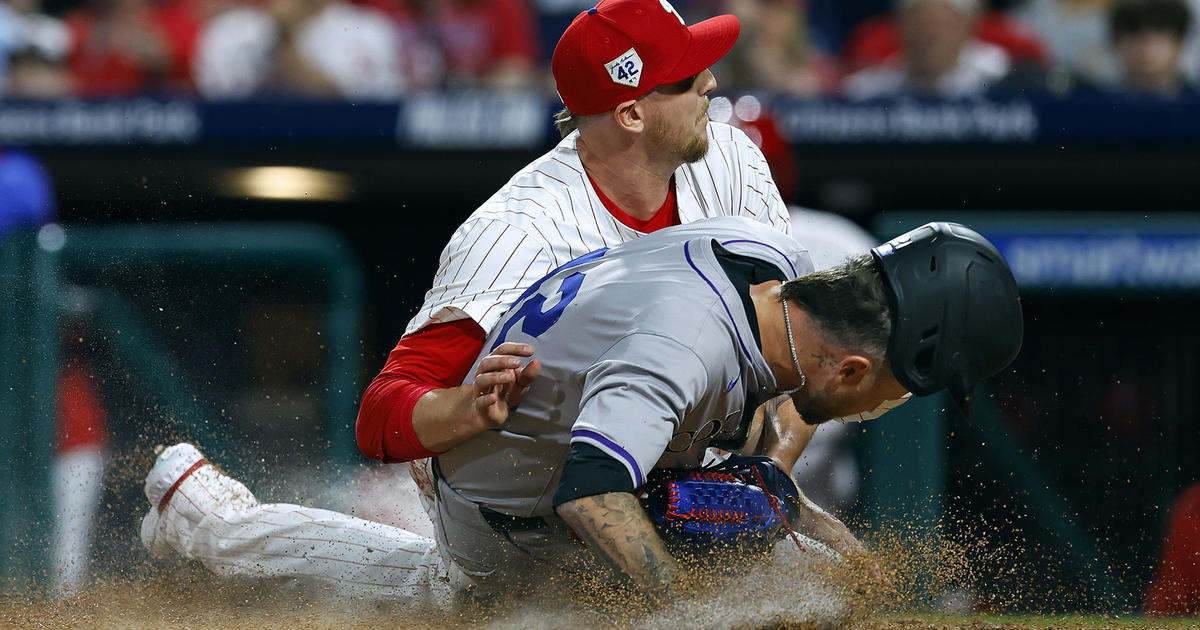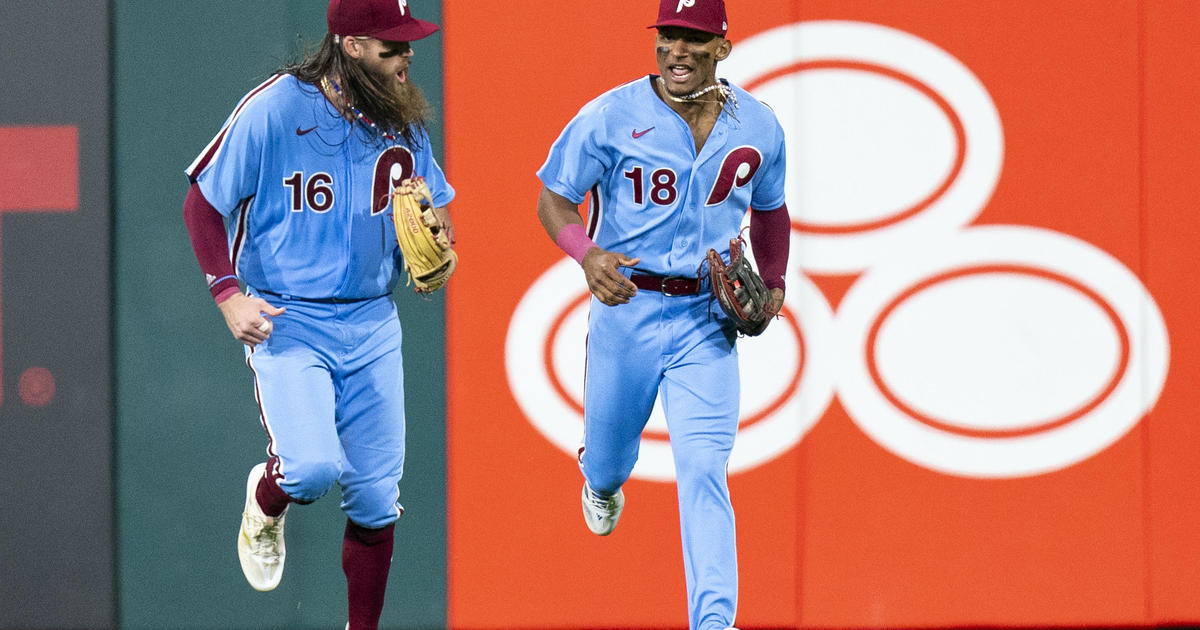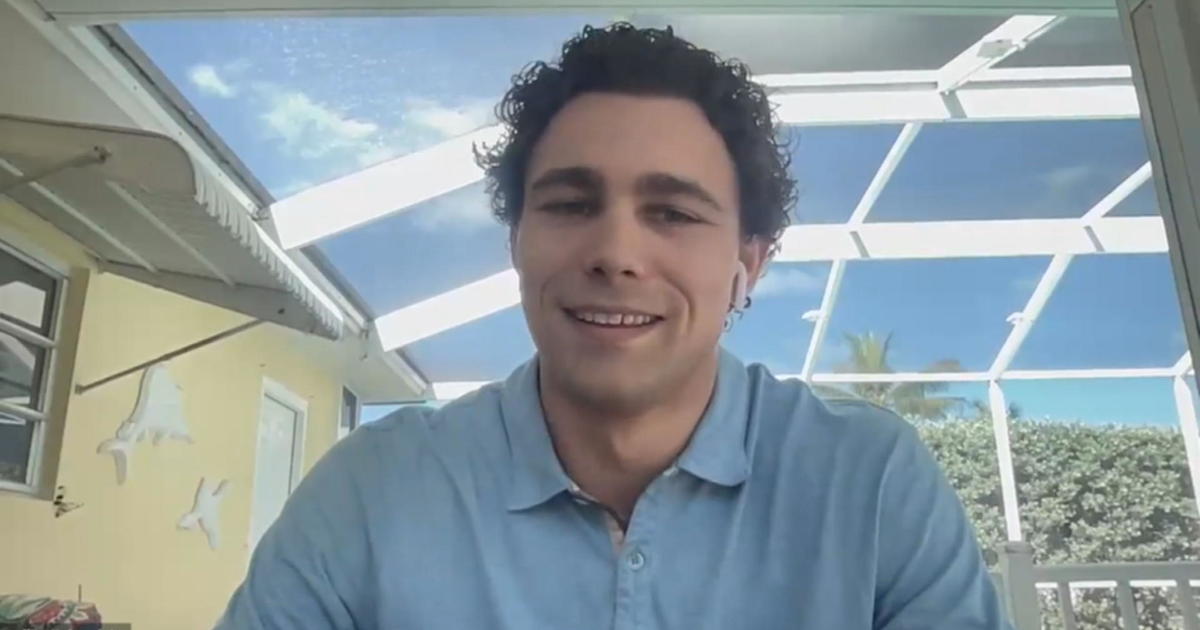Tiger Woods Gets A Reprieve In The Masters
AUGUSTA, Ga. (AP) — Augusta National kept Tiger Woods in the Masters on Saturday, saying it would be "grossly unfair" to disqualify him for a rules violation that club officials didn't immediately recognize.
In a bizarre twist to a complex case, it was a television viewer's phone call that ultimately spared the world's No. 1 player.
The viewer questioned the way Woods took a penalty drop after his wedge into the par-5 15th hole struck the flag stick and bounced back into the water. Woods dropped the ball two yards behind where he had hit his previous shot, a violation.
Fred Ridley, head of the Masters competition committees, said officials reviewed the video of Woods' drop and found nothing wrong, so they didn't bother talking to Woods before he signed for a 71 in the second round, leaving him three shots behind.
It was only after Woods explained in interviews why he took that drop — to land short of the pin — that prompted another call to the club and led to another review. Woods ultimately was given a two-shot penalty Saturday morning, turning the 71 into a 73. But he was not disqualified because of a revised rule (Rule 33-7) that allows players to stay in the tournament if a dispute was based on television evidence.
Woods took advantage of his reprieve to shoot a 2-under 70 Saturday that left him four strokes off the lead held by Brandt Snedeker and Angel Cabrera.
Even though Woods was guilty of not knowing the rules, Augusta National took the blame for not alerting him of a potential violation pointed out by a TV viewer.
"Our committee had made a decision and Tiger, although he didn't know that decision, he was entitled to have the benefit of that decision when he signed his scorecard," Ridley said. "And to me, it would have been grossly unfair to Tiger to have disqualified him after our committee had made that decision."
Woods came to the course at 8 a.m. — nearly six hours before his tee time — to review the video with club officials.
In a statement posted on his Twitter account, Woods said he was unaware he had violated the rule. Players can take a drop as far back as they want on a line from the hole to where it crossed the hazard, unless they choose to hit from the original spot. Then, they are to drop as close as possible to the previous shot.
The possibility that Woods might face disqualification caused a bigger buzz than any shot at this Masters, especially one day after 14-year-old Guan Tianlang was penalized one shot for slow play, which nearly caused him to miss the cut.
But this was Tiger Woods, No. 1 in the world, the biggest draw in golf. He had won two straight tournaments coming into the Masters and was the overwhelming favorite to win a green jacket for the first time since 2005 and end his five-year drought in the majors.
Ridley, a former U.S. Amateur champion who served two years as USGA president, said Woods was candid about his drop and helped the committee make the right decision in docking him two shots.
"At that point, it was either no penalty or a two-shot penalty," Ridley said. "But disqualification (Saturday) morning was not even on the table."
Rule 33-7 was revised two years ago to account for TV viewers calling in violations that the players might not know until after they have signed their cards. If no one had called in, Augusta National would have had no reason to review the drop. But after Woods implicated himself with his post-round comments, and the club had reviewed the drop and assessed the two-shot penalty, he would have been disqualified.
There is a distinction between not being aware of a violation and not knowing the rules. In this case, Woods didn't know the rule. The mistake was on the part of Ridley, who didn't recognize the violation and chose not to talk to Woods before he signed his card.
The club said CBS Sports announcer Jim Nantz alerted Masters officials that Woods' post-rounds comments were causing some doubts, leading to another review.
Woods had said after his round, "I went back to where I played it from, but went two yards further back and I tried to take two yards off the shot of what I felt I hit. And that should land me short of the flag and not have it either hit the flag or skip over the back. I felt that was going to be the right decision to take off four (yards) right there. And I did. It worked out perfectly."
He hit that fifth shot to about 4 feet and made the putt for bogey.
Photos and video replays show his first divot clearly in front of where Woods took the second drop. Ridley said one reason he didn't see a clear violation the first time was that Woods' caddie never moved from the original spot. Ridley said the Masters gets a dozen or so calls a day, and he didn't see a violation.
"It was my decision, because it was a non-violation, that I was not going to go down and tell Tiger that we had considered this and it wasn't a violation," Ridley said. "I didn't see at that point in time that really was going to add anything to where we were."
Any regrets?
"There's not a day that goes by that there are not some things I wish I would have done differently," Ridley said.
That it involved Woods only made it a bigger issue.
"Take the fact that it was Tiger out of the equation and it is a fair ruling. Since it is him the debate begins about TV ratings etc etc," former U.S. Open champion Graeme McDowell said on Twitter.
In one of his more famous incidents, Woods hit a shot that went onto the roof and over the back into a parking lot at Firestone. The ball was never found, and because there was no out-of-bounds, Woods was correctly given a free drop by the practice range. Last year at Quail Hollow, he hit a shot left of the fifth green that was never found. He was allowed a free drop because fans said a man picked it up and ran off.
"There is some leeway with the signing the incorrect card. Not with intentionally not dropping as near as possible," David Duval said on Twitter.
The revision to Rule 33 was based upon the modern era of television. One example cited was Padraig Harrington, who opened with a 65 in Abu Dhabi at the start of the 2011 season. He was disqualified when a slow-motion replay on high-definition TV revealed that his ball moved ever so slightly after he replaced his marked. Harrington didn't realize it had moved — a two-shot penalty — and was disqualified for an incorrect card.
That same year, Camilo Villegas was disqualified in Hawaii when a TV viewer noticed he tamped down a divot in an area where his chip was rolling back down a slope. Rule 33 would not have applied there because Villegas did not know the rule.
Woods started the year with a rules violation. He took relief from an imbedded lie in a sandy area covered with vines in Abu Dhabi. It was determined that relief was not allowed in the sand. He was docked two shots before signing his card, and it caused him to miss the cut.
This is not the first time Augusta National had to review an incident involving Woods.
In the opening round of 2005, he leaned over to tap in for par on the 14th hole and it appeared his right foot was behind the line of his putt — a violation of Rule 16-1e that a player's foot cannot touch an extended line behind his ball. Officials deemed the tape inconclusive. Woods went on to the win the Masters.
Woods gets more air time than any other player.
"It is a very uneven playing field out there," said Curtis Strange, a two-time U.S. Open champion and analyst for ESPN. "We do have the call-ins. Tiger broke the rules (Friday). It gave him a two-stroke penalty. I think that's enough."
Reporters were kept away from the front of the clubhouse when Woods arrived alone in a black SUV. He changed shoes and headed to the practice range.
Hunter Mahan summed up the mess on Twitter: "If you think tiger should be dq'd your not wrong, if you think 2 shot penalty is enough your not wrong. Not sure the right answer."
Would it have been different if it had been another player — perhaps someone without 14 majors who drives the sport?
That's an argument no tournament, not even the Masters, can win.
"All I can say is that, unequivocally, this tournament is about integrity," Ridley said. "Our founder, Bobby Jones, was about integrity. And if this had been John Smith from wherever, he would have gotten the same ruling. Because again, it is the right ruling under these circumstances.
(© Copyright 2013 The Associated Press. All Rights Reserved. This material may not be published, broadcast, rewritten or redistributed.)



